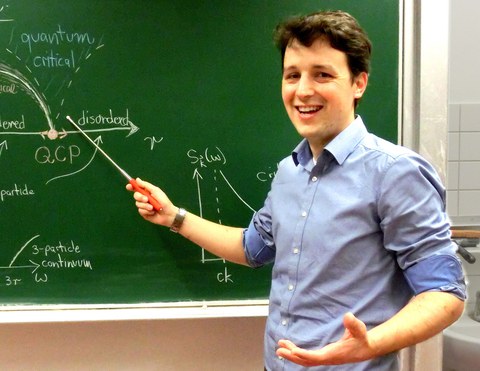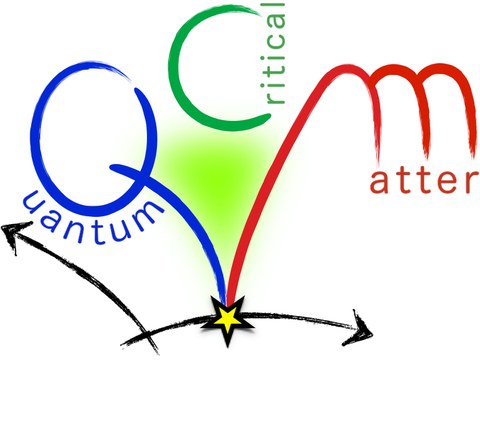Aug 26, 2019
Wo Quantenereignisse entscheiden

Dr. Lukas Janssen erforscht Quantenmaterialien – ab 1. September auch als Leiter einer Emmy Noether-Nachwuchsgruppe.
DFG grants Emmy Noether Junior Research Group "Quantum Critical Matter" for TUD researcher Lukas Janssen
Some materials possess properties that cannot be described by "conventional" physics - these "quantum materials" find their explanations at the smallest scale, on the quantum level. Why and how do quantum materials change their basic properties at critical points, and how can one control them? These are questions that Dr. Lukas Janssen investigates as the head of a recently established Emmy Noether Junior Research Group.
The Emmy Noether program of the German Research Foundation (DFG) gives exceptionally qualified early career researchers the chance to qualify for the post of professor at a university by leading an independent research group for a period of six years. "This is an excellent opportunity," explains the 35-year-old physicist, "I have the privilege to lead a small and innovative group of young scientists, which will further advance an exciting and topical research area." The name of the project: "Quantum critical matter: From frustrated spins to interacting fermions and emergent gauge fields." Over the course of the next six years, Janssen will hire a postdoc and two PhD students, and he will supervise master and bachelor theses projects. The DFG supports the group with around one million euro.
Before coming to Dresden to work with TUD's Prof. Dr. Matthias Vojta, Lukas Janssen was a postdoctoral researcher in the group of Prof. Dr. Igor Herbut at Simon Fraser University in Vancouver, Canada. There, he worked on the DFG-supported project on "Quantum phase transitions and critical phenomena in graphene" – an atom-thin material that serves as a test-bed to investigate the intriguing physics of ultrarelativistic fermions. Within this project, Janssen discovered his fascination for the intriguing physics of quantum critical matter. "Our research combines several fascinating and highly popular branches of physics: Although we are condensed-matter physicists in the first place, our approach ranges from the application of sophisticated mathematical concepts developed in high-energy physics through aspects of quantum information theory all the way to the synthesis of new magnetic materials in collaboration with material researchers and chemists." The Emmy Noether program is not only academically a valuable asset for the junior researcher: "The long-term DFG support also gives us as a family a reliable perspective," says the father of four.
Media Inquiries:
Dr. Lukas Janssen
Institute of Theoretical Physics
Tel.: 0351 463-36111
https://tu-dresden.de/physik/qcm

